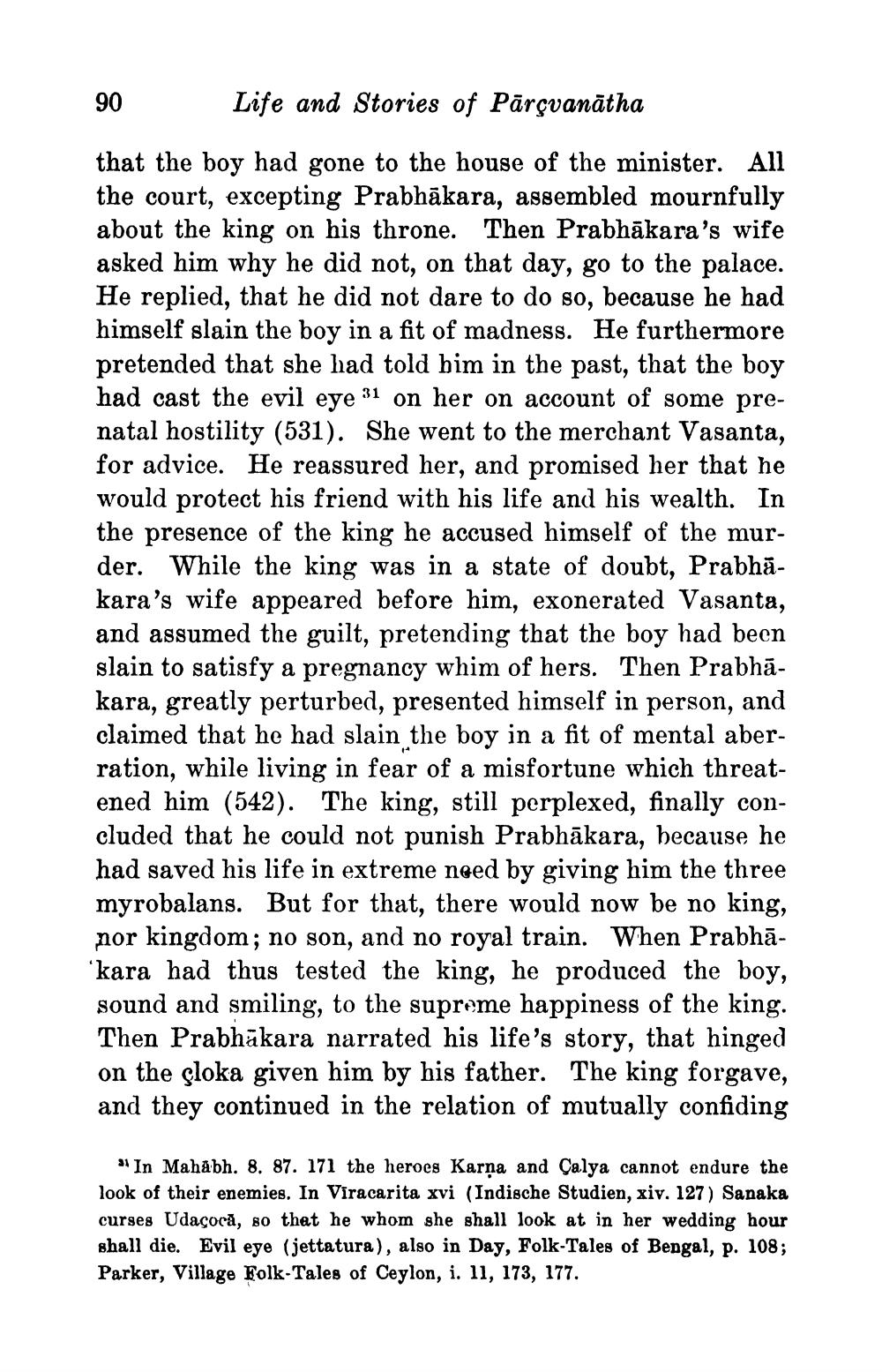________________
90
Life and Stories of Parçvanatha
that the boy had gone to the house of the minister. All the court, excepting Prabhakara, assembled mournfully about the king on his throne. Then Prabhakara's wife asked him why he did not, on that day, go to the palace. He replied, that he did not dare to do so, because he had himself slain the boy in a fit of madness. He furthermore pretended that she had told him in the past, that the boy had cast the evil eye 31 on her on account of some prenatal hostility (531). She went to the merchant Vasanta, for advice. He reassured her, and promised her that he would protect his friend with his life and his wealth. In the presence of the king he accused himself of the murder. While the king was in a state of doubt, Prabhakara's wife appeared before him, exonerated Vasanta, and assumed the guilt, pretending that the boy had been slain to satisfy a pregnancy whim of hers. Then Prabhākara, greatly perturbed, presented himself in person, and claimed that he had slain the boy in a fit of mental aberration, while living in fear of a misfortune which threatened him (542). The king, still perplexed, finally concluded that he could not punish Prabhakara, because he had saved his life in extreme need by giving him the three myrobalans. But for that, there would now be no king, nor kingdom; no son, and no royal train. When Prabha'kara had thus tested the king, he produced the boy, sound and smiling, to the supreme happiness of the king. Then Prabhakara narrated his life's story, that hinged on the cloka given him by his father. The king forgave, and they continued in the relation of mutually confiding
14
"In Mahabh. 8. 87. 171 the heroes Karna and Çalya cannot endure the look of their enemies. In Viracarita xvi (Indische Studien, xiv. 127) Sanaka curses Udaçoca, so that he whom she shall look at in her wedding hour shall die. Evil eye (jettatura), also in Day, Folk-Tales of Bengal, p. 108; Parker, Village Folk-Tales of Ceylon, i. 11, 173, 177.




